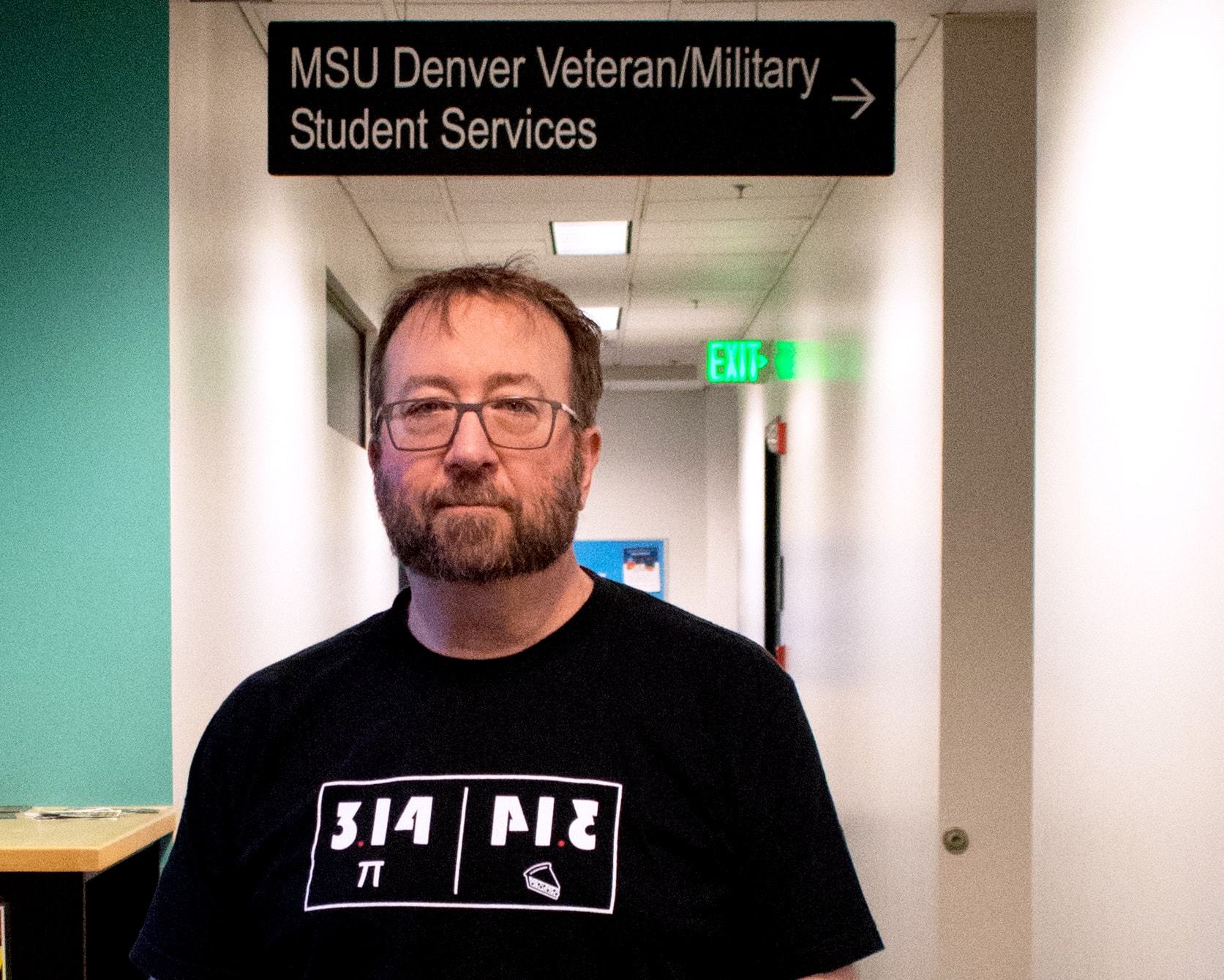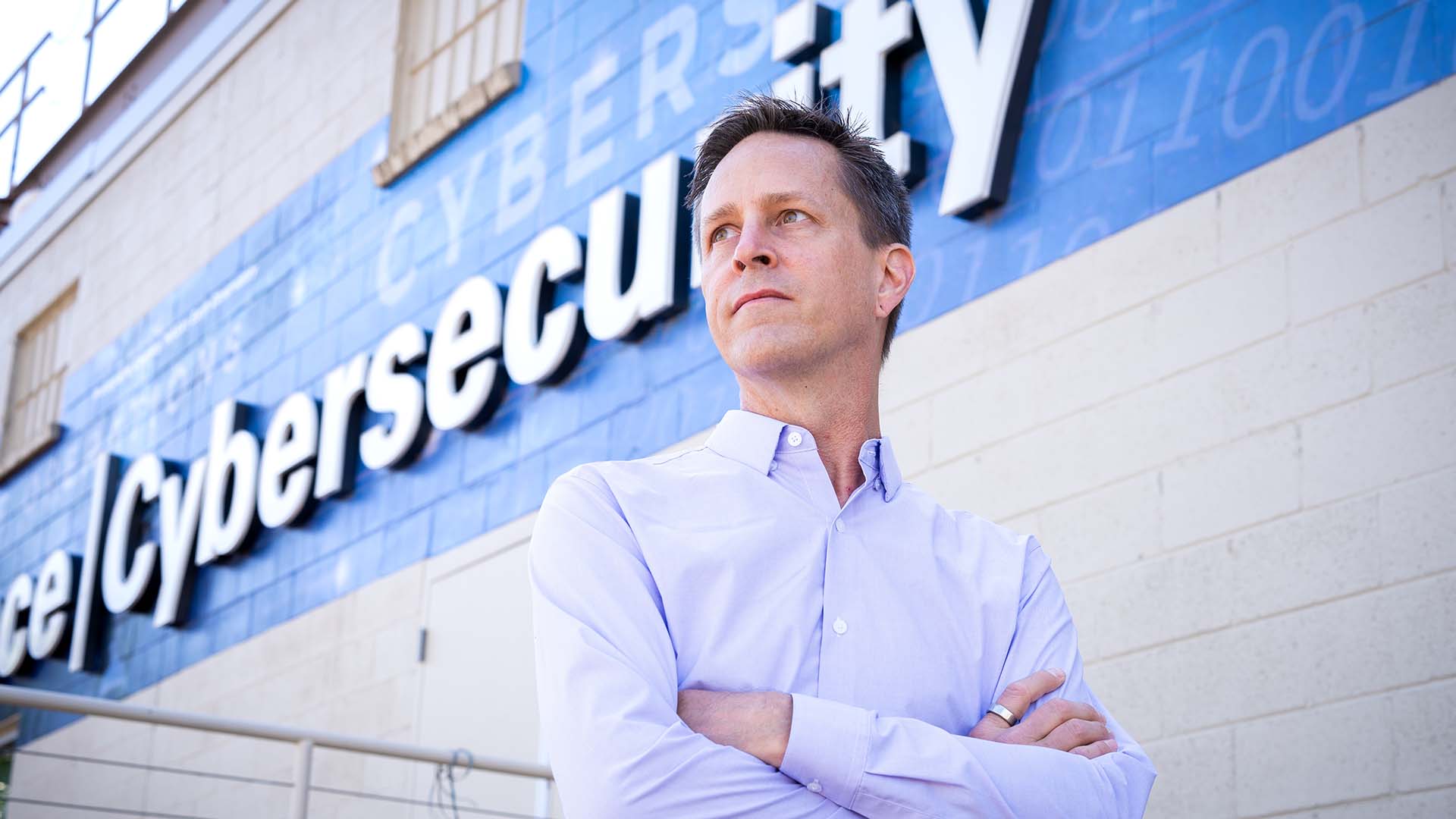Reboot camp: cybersecurity education for vets
A collaboration between Palo Alto Networks, State of Colorado and MSU Denver serves a growing workforce opportunity.

Technology is cool. You can turn 44 beer cans into a keyboard with an Arduino board and Raspberry Pi. And it’s great to get the weather from a digital assistant – as long as it doesn’t fuel nightmares by randomly bursting into laughter.
Convenience comes at a price, though. The trade-off of an ever-expanding “internet of things” is a subsequent vulnerability at each point of connection.
It has also created an unprecedented boom in opportunity for security professionals – along with challenges in filling these roles.
“There are hundreds of thousands of jobs available,” said János Füstös, professor of Computer Information Systems at Metropolitan State University of Denver. “The shortage is so severe that employers are constantly poaching talent from each other.
“Not only that, but companies have actually stopped advertising positions and try to find other channels through which to hire talent; they can become the target of an attack because criminals know there’s a shortage of professionals that might be exploitable.”

With the recent launch of an undergraduate degree in cybersecurity and a graduate program slated to come online soon, MSU Denver is uniquely positioned to fulfill this demand. The combined course work from computer science, criminal justice and CIS gives students the comprehensive background to mitigate, identify and address attacks while aiding law enforcement in investigation.
“You have to be an expert at everything – operating systems, applications, networking, malware, viruses, policy and more,” Füstös said. “Evaluating risk and translating it into the language of business is invaluable – and that’s what we’re practicing here.”
It turns out there’s also a group of students at the ready to answer the digital-security call of duty: veterans.

Füstös noted how the discipline and technical backgrounds that military service provides is often a natural overlap with the skills needed for people to be successful in cybersecurity. They’ll also often already have undergone background checks, which comes in handy for jobs that require higher levels of security clearance.
And when it comes to applied education, there’s no better way to learn than by doing – which is why the University recently collaborated with industry leader Palo Alto Networks to host an Accredited Configuration Engineer certification course over MSU Denver’s spring break.
The intensive course work was part of the company’s Veteran’s Training Initiative dedicated to training veterans and transitioning service members on its next-generation security platform at no cost.
And more than a pledge, Palo Alto Networks reflects this value in their own organizational culture, with several veterans in leadership positions, including the company’s CEO Mark McLaughlin and Chief Security Officer Rick Howard.
In addition to eight MSU Denver students, 12 personnel from the State of Colorado also took part – further aligning workforce needs with applied education. All participants in the course were veterans.
For Stan Allen, the training was a perfect confluence of opportunity.
“I think it’s awesome,” said Allen, a senior CIS student and Army veteran who is taking part in the program. “It’s everything that’s relevant in the security industry right now.”
The certification partnership makes sense for the University (which uses Palo Alto Networks Next-Generation Firewall) as part of a bigger conversation on access to applied education.
Füstös, who completed the steps to become an instructor himself, also led the way for MSU Denver to become an Authorized Academy Center. This enables faculty the ability to integrate Palo Alto Networks training materials into courses for free – which the CIS professor does as part of his Security Tools and Techniques course, found in the new cybersecurity undergraduate degree.
As a former recruiter, Allen doesn’t see the need to sell other veterans on the relevance of the self-evident alignment of service, study and career. He pointed out that the Top Secret/Sensitive Compartmented Information he gained as part of his military background lends to an easier progression for him and other veterans to enter the ever-growing industry.
And from working with Palo Alto Networks next-generation technology, he’s confident that the applied skills – and demonstrable certification – will set him up for a future internship and job in penetration testing.
“Working with world-class software like this helps you be successful in a challenging field,” Allen said. “It’s like a game of chess, and the opportunities grow every day.”







